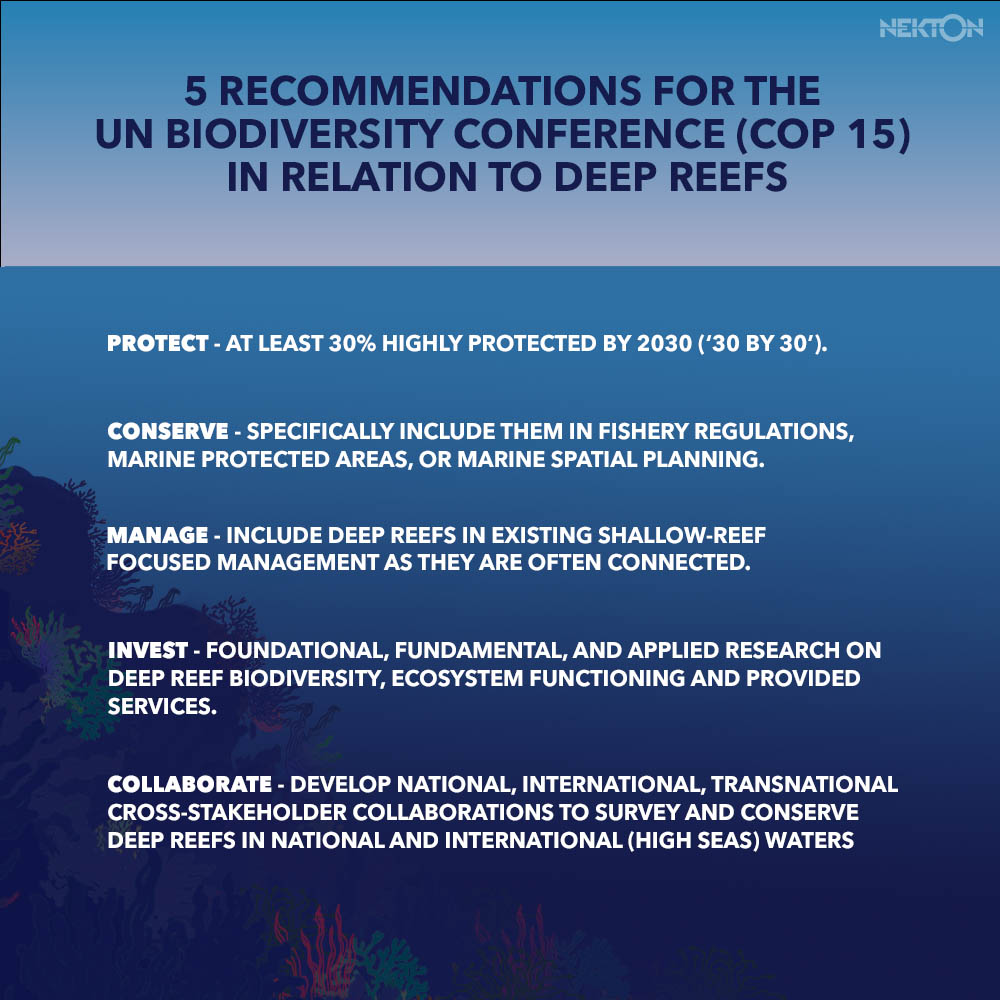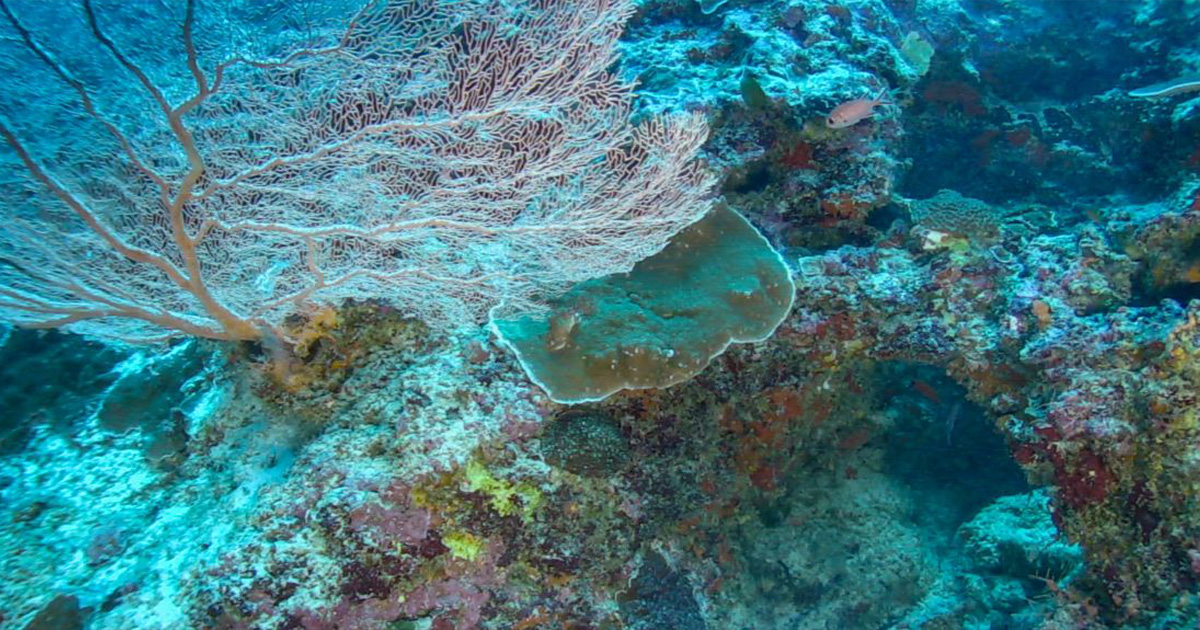As world leaders, government negotiators, scientists and conservationists gather at the UN Biodiversity Conference, COP15, to agree to halt and reverse nature loss, an international team of marine scientists and conservationists have made an impassioned plea for the urgent conservation of deep reefs.
Their calls are based on a new study, recently published in the journal Conservation Letters, led by scientists from Nekton, the Western Indian Ocean (WIO) and the University of Oxford. This confirms for the first time that deep reef habitats, notably in the WIO, are largely unprotected despite being under threat from a multitude of stressors, including overfishing, pollution, climate change and, in the near future, seabed mining.
Their calls follow COP27 in Egypt, where many scientists, politicians and campaigners concluded that the 1.5°C climate goal failed, concluding a grim future for the vast majority of shallow reefs.
Deep reefs (found below 30m) provide essential ecosystem services for climate change resilience, ocean health, and food security whilst also acting as a refugia for organisms threatened in shallow water, including commercially important species. Despite this, deep reefs are barely protected, even though they have a larger geographic footprint than their shallower counterparts. Furthermore, the scarcity of fish in shallow waters combined with modern deep sea fishing technologies is resulting in deep reefs being increasingly exploited by coastal communities who need fish for their food security.
"We strongly encourage deep reefs to be included in conservation and sustainable management action to complement global targets, notably 30% protection of the global ocean by 2030," said the study's lead author, Dr. Paris Stefanoudis, a marine biologist at the University of Oxford's Department of Biology and a Research Scientist at Nekton. "Deep reefs are critical to a healthy marine ecosystem and face similar threats from overfishing, pollution and climate change faced by the much-imperiled shallow reef system."
Covering over 8% of the global ocean, the Western Indian Ocean is one of the least known, least protected, and most threatened marine regions of our planet. Shallow and deep coral reefs of the WIO are marine biodiversity hotspots with high numbers of species that are found nowhere else on Earth. They are essential to the region's 100 million people living within 100km of the coastline, including over three million people who are directly dependent on artisanal fishing for their livelihoods. The population is projected to double over the next 30 years, driving greater stressors on the ocean's biological capacity to support lives and livelihoods.
The scientific team has co-developed a new framework for conserving deep reefs including practical recommendations and specific actions for regional policy-makers, conservationists and scientists. This has been published in the journal Conservation Letters.
The researchers urge policy makers to use the COP15 summit to agree to the following:
 (Photo credit: Nekton)
(Photo credit: Nekton)
"To halt and reverse nature loss, the UN Biodiversity Conference, COP15 must prioritize the conservation of unique ecosystems such as deep reefs, one of the least protected ecosystems on Earth," stated co-author Professor Lucy Woodall, Professor of Marine Biology at the University of Oxford, Nekton Principal Scientist, "We hope our recommendations and actions will be useful for decision makers in the WIO, be applied within the new Western Indian Ocean regional policy and provide the springboard for deep reefs to become protected across the global ocean," continued Professor Woodall.
Co-author Melita Samoilys, CORDIO East Africa explains: "Our framework was jointly developed with a range of stakeholders from academia, research, management and government, and provides a list of actions across three themes: capacity, information collection, and information sharing. Given the scale of the issue, we have also identified which parties—such as funding agencies, government, Institutions or the research community—are needed to work together to realize those actions."
"To ensure a prosperous and resilient Western Indian Ocean, it is essential that deep reefs are no longer ignored by scientists and policy makers, and they must be specifically considered in conservation and management strategies," shared co-author Athur Tuda, Executive Director of the Western Indian Ocean Marine Science Association, WIOMSA.
Journal Reference:
- Paris V. Stefanoudis, Sheena Talma, Nico Fassbender, Denise Swanborn, Christine Nyangweso Ochieng, Kevin Mearns, John D. Komakoma, Levy M. Otwoma, Nsajigwa Emmanuel Mbije, Kennedy E. Osuka, Melita Samoilys, Nirmal Shah, Toufiek Samaai, Evan Trotzuk, Arthur Tuda, Francisco Zivane, Daniel Wagner, Lucy C. Woodall. Stakeholder‐derived recommendations and actions to support deep‐reef conservation in the Western Indian Ocean. Conservation Letters, 2022; DOI: 10.1111/conl.12924



